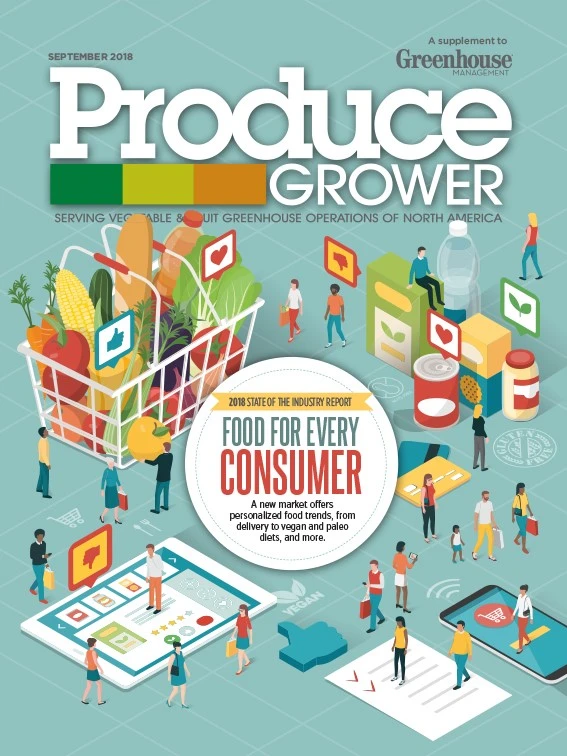
According to DNO Produce president and COO Alex DiNovo, the produce market has changed. He says DNO Produce, a wholesale produce retailer and fresh cut produce processor, has shifted from selling primarily to retailers when it was founded by his Alex’s father, Tony, two-plus decades ago, to 90 percent of its business being food service now. DiNovo attributes that to greater grocery store consolidation and the establishment of distribution centers. At the same time, he sees a change in how consumers view and value produce.
“Produce is top of mind,” he says. “People understand healthy eating more than they did in the past.”
Below, DiNovo explains how DNO Produce sells to schools, supplements its sales with educational materials and sources its produce.

Produce Grower: Many of your customers are schools. How has that market developed?
Alex DiNovo: Schools are a great market for us. It’s probably directly and indirectly our biggest market. It’s a good place to be because I think schools are three markets rolled into one. They are a primary market because you can sell to them right now. They are a future market — they are going to get older and if they have good experiences eating produce, then they are likely to grow up and eat more produce. And they are an influencer market. When they go shopping with their parents, they are going to go to the grocery store and influence the buying decisions of that household.
PG: Why do you provide supplemental science, technology, engineering and math (STEM) education materials along with the produce you sell to schools?
AD: I think that’s critical to the success of selling produce in schools. We do a lot with entitlement dollars, federally funded schools, a lot of the programs that get produce to kids. One of the ones I like the most is the fresh fruit and vegetable snack program. That is a program that has the best intent. It’s designed to expose children to different new and unique fruits and vegetables they otherwise might never have a chance of trying. And it’s specifically for elementary schools in high free and reduced [lunch] areas. Some of these healthy snacks are the only snacks they are going to receive. It’s critically important, in my opinion, to educate them as well.
PG: How are you sourcing produce that will likely end up being sold in schools?
AD: We source produce the way that most distributors and processors probably do. There are certain guidelines from federal programs that require produce to be grown domestically, which can be challenging with certain things like pineapple. There are certain limitations in that regard. As far as food safety standards go, all our vendors are required to have third-party GAP audits. And we try to go local — so if they’re a Michigan customer, we try to line them up with Michigan product. I think a lot of customers believe — and rightfully so, as I believe it, too — that keeping things local is like compound interest. There is an economic incentive in keeping the local supply chains up and running.

Explore the September 2018 Issue
Check out more from this issue and find your next story to read.
Latest from Produce Grower
- TIPA Compostable Packaging acquires paper-based packaging company SEALPAP
- Divert, Inc. and General Produce partner to transform non-donatable food into Renewable Energy, Soil Amendment
- [WATCH] Sustainability through the value chain
- Growing leadership
- In control
- The Growth Industry Episode 8: From NFL guard to expert gardener with Chuck Hutchison
- 2025 in review
- WUR extends Gerben Messelink’s professorship in biological pest control in partnership with Biobest and Interpolis





